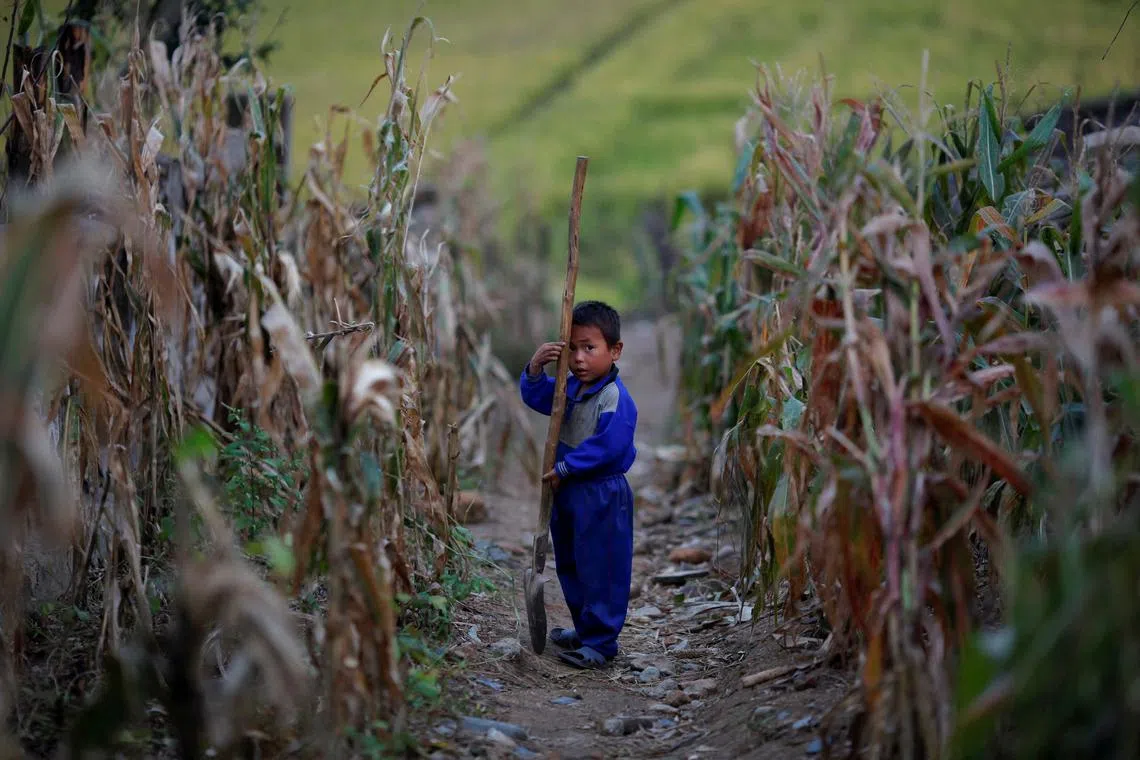North Korea deploys military at farms to combat food shortages
Sign up now: Get insights on Asia's fast-moving developments

Getting troops to plant and harvest crops is both an economic imperative and a geopolitical calculation for an isolated North Korea facing food shortages.
PHOTO: REUTERS
SEOUL – Hundreds of thousands of troops in North Korea are mobilising to help plant and harvest crops.
The country’s military is rejigging some of its munitions factories to produce tractors and threshing machines, while also converting some airfields into greenhouses. Soldiers are reportedly being asked to extend their service by three years and spend them on farms.
The directives have come straight from North Korean leader Kim Jong Un, who has called for his military to become “a driving force” in increasing food production.
It is both an economic imperative and a geopolitical calculation for an isolated nation facing food shortages.
Sanctions imposed since 2016 over the North’s nuclear programme have devastated its exports and ability to earn hard currency. Then the Covid-19 pandemic and the resulting border closures squeezed what little trade remained with China.
There is little potential relief unless China concludes its fellow communist neighbour cannot handle its food problem on its own and decides to send large aid shipments.
North Korea appears to be hunkering down for a prolonged confrontation with the United States, as the Biden administration, focused on the war in Ukraine, shows no urgency to negotiate.
“The situation is the worst since Kim took power,” said Dr Kwon Tae-jin, an expert on the North Korean food situation at GS&J Institute. “If I were him, I wouldn’t know where to begin to fix the problem.”
The shortages in the North loom large in the political backdrop. When Mr Kim convened his Workers’ Party of Korea in February, its predominant agenda was the food problem.
When he presided over his Central Military Commission more than a week ago, the state media only briefly mentioned the threat posed by the joint military drills between South Korea and the United States, focusing instead on Mr Kim’s campaign around food.
South Korea is trying to use the issue as leverage to coax Mr Kim back to dialogue.
When Mr Kim’s regime launched an intercontinental ballistic missile in February, South Korea blamed the North for hosting large military parades and developing nuclear missiles while its people were “dying of starvation one after another amid a serious food crisis”.
Seoul tends to emphasise the North’s food shortages as a criticism of Pyongyang for devoting resources to its nuclear programme.
South Korean officials later said they did not expect the shortages to lead to mass starvation or to endanger Mr Kim’s grip on power. NYTIMES


